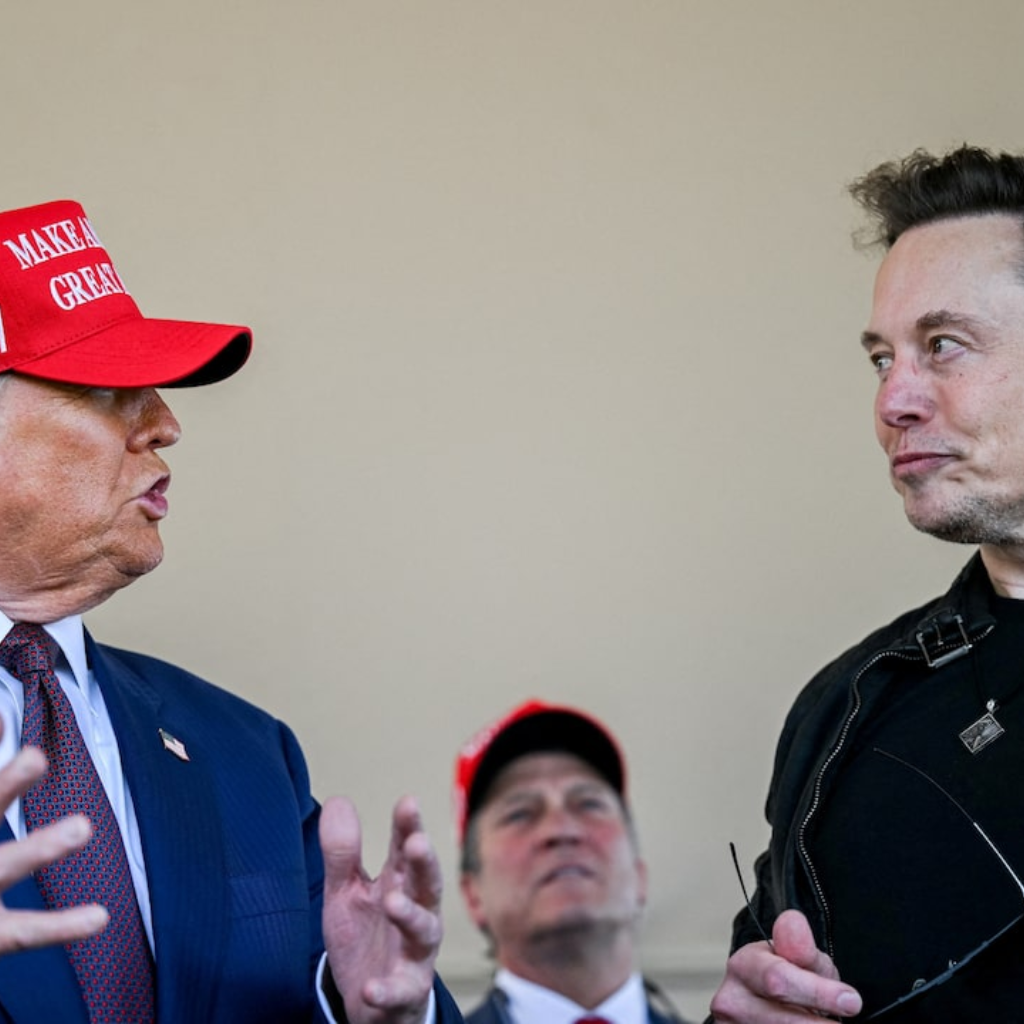What Is the Strategic Bitcoin Reserve Proposal, and How Could It Transform the US Financial Landscape?
The United States Strategic Bitcoin Reserve, an idea potentially championed under former President Donald Trump’s second term, proposes a groundbreaking initiative to establish the US as the “crypto capital of the planet.” By creating a national Bitcoin reserve, the government would manage substantial Bitcoin holdings, marking a revolutionary shift in the integration of decentralized digital currencies into national financial strategies. Bitcoin, defined as a decentralized digital currency operating without a central authority, has the potential to reshape not only the US financial system but also the global cryptocurrency market.
What Are the Details of the Proposed US Bitcoin Reserve?
How Much Bitcoin Does the US Currently Hold?
As of now, the US government holds approximately 200,000 BTC, valued at an estimated $18 billion. This makes the United States one of the largest institutional holders of Bitcoin. However, private entities, such as MicroStrategy—a business intelligence firm—hold even more. MicroStrategy owns 444,000 BTC, significantly influencing the cryptocurrency market.
How Would the Government Acquire More Bitcoin?
Under the proposed plan, the US Department of Treasury would oversee Bitcoin acquisition, targeting an annual purchase of up to 200,000 BTC. The ultimate goal is to accumulate 1 million BTC, representing about 5% of Bitcoin’s finite supply of 21 million coins. This strategy would ensure the US maintains a significant stake in the global cryptocurrency ecosystem.
How Does the Bitcoin Act Support the Strategic Bitcoin Reserve?
What Is the Bitcoin Act, and Why Is It Important?
The Bitcoin Act, introduced in July 2024 by Senator Cynthia Lummis, aims to formalize the legislative framework for a national Bitcoin reserve. Key features include:
- Decentralized Vaults: Establishing a secure network of Bitcoin vaults managed across various locations to safeguard against theft or hacking.
- Bipartisan Support: Highlighting growing acceptance of Bitcoin as a legitimate financial asset in US policymaking.
This Act would ensure proper oversight and storage for government Bitcoin holdings, signaling a robust commitment to integrating Bitcoin into the national economy.
What Do Experts Say About the Strategic Bitcoin Reserve?
Why Are Some Experts Skeptical About the Feasibility of a National Bitcoin Reserve?
Dr. Arash Aloosh, a noted economist, raises concerns about several obstacles:
- Regulatory Hurdles: Cryptocurrencies face complex and evolving regulations globally.
- Market Capitalization Limits: Despite its growth, Bitcoin’s market size is still small compared to traditional financial assets like gold.
- Government Budget Deficit: Acquiring significant Bitcoin holdings could strain already tight federal budgets.
- Volatility Risks: Bitcoin’s value can experience sharp fluctuations, posing risks to financial stability.
For example, in 2021, Bitcoin’s price swung between $30,000 and $69,000 within a single year, underscoring its unpredictable nature.
What Potential Benefits Do Optimistic Experts See?
Songping Que, a leading Bitcoin advocate, highlights the transformative potential of a national Bitcoin reserve:
- Market Growth Catalyst: A US reserve could legitimize Bitcoin on a global scale, encouraging broader adoption.
- Price Surge: Bitcoin’s value could skyrocket to $500,000 or beyond due to increased demand from institutional and governmental buyers.
- Institutional Confidence: Encourages companies like Tesla and PayPal to expand their cryptocurrency investments.
How Are States Embracing Bitcoin Reserves?
What Is the Pennsylvania Bitcoin Strategic Reserve Act?
Pennsylvania’s Bitcoin Strategic Reserve Act allows the state treasury to allocate up to 10% of its funds to Bitcoin. This move reflects a growing recognition of Bitcoin’s potential as a hedge against inflation and a store of value. For instance, with inflation rates hitting 7% in recent years, Bitcoin offers an alternative asset that is not directly tied to fiat currency.
How Does the Oklahoma Bitcoin Freedom Act Work?
Oklahoma’s Bitcoin Freedom Act takes a more comprehensive approach:
- Bitcoin Payments: Enables residents to pay for goods, services, and even taxes using Bitcoin.
- Salary Options: Allows businesses to pay employees in Bitcoin, fostering wider adoption.
- Wealth Preservation: Frames Bitcoin as a long-term strategy to preserve purchasing power amidst economic uncertainty.
How Does the US Compare to the Rest of the World in Bitcoin Ownership?
What Percentage of Bitcoin Holdings Are Controlled by US Institutions?
US institutions dominate global Bitcoin ownership, holding 65% of institutional Bitcoin investments. In contrast, non-US institutions account for the remaining 35%, underscoring America’s leadership in cryptocurrency adoption.
How Do Institutional Players Like MicroStrategy Shape Bitcoin’s Market?
MicroStrategy’s substantial Bitcoin holdings exceed the combined reserves of countries like China and the UK. This demonstrates the outsized influence private companies can have on the market. By strategically acquiring Bitcoin during market downturns, MicroStrategy has capitalized on price rebounds, showcasing the potential profitability of long-term Bitcoin investment strategies.
What Are the Future Projections for Bitcoin Prices?
How Could Government and Institutional Adoption Impact Bitcoin’s Value?
Bitcoin’s price is heavily influenced by adoption trends. Tom Lee, a prominent analyst, forecasts prices exceeding $250,000 driven by:
- Halving Cycles: Bitcoin halving—a reduction in mining rewards—occurs approximately every four years, reducing supply growth and often driving prices upward.
- Strategic Reserves: Government initiatives to build reserves would increase demand significantly.
- Institutional Adoption: Large-scale investments by companies like BlackRock and Fidelity underscore Bitcoin’s appeal as a viable asset class.
Could Bitcoin Reach $500,000?
Optimists like Songping Que believe $500,000 is achievable if governments worldwide adopt Bitcoin reserves and institutions continue increasing their stakes. For context, Bitcoin’s price surged from $5,000 in 2020 to nearly $70,000 in 2021, reflecting its potential for rapid appreciation.
What Challenges Could Hinder Widespread Bitcoin Adoption?
Why Is Volatility a Concern?
Bitcoin’s price volatility remains a significant barrier. For instance, a single tweet by Elon Musk in 2021 led to a 10% price drop within hours. This unpredictability makes Bitcoin a risky asset for governments and investors seeking stability.
How Might Central Bank Digital Currencies Compete with Bitcoin?
Central bank digital currencies (CBDCs), such as China’s digital yuan, are state-backed digital currencies designed to offer stability and control. Unlike Bitcoin, which operates on a decentralized network, CBDCs are centralized, potentially drawing interest away from cryptocurrencies by providing a familiar, government-endorsed alternative.
What Are the Key Takeaways About the Strategic Bitcoin Reserve?
The concept of a United States Strategic Bitcoin Reserve is groundbreaking, and its potential implications extend far beyond the realm of cryptocurrency enthusiasts. Here’s what investors, business owners, and policymakers need to know:
- Legitimizing Bitcoin as a National Asset: The establishment of a Bitcoin reserve would place the US at the forefront of cryptocurrency adoption, signaling to the world that Bitcoin has matured from a speculative asset to a legitimate financial instrument.
- Driving Bitcoin’s Market Value: By accumulating up to 1 million BTC, the US could trigger a substantial increase in demand, potentially pushing Bitcoin’s value into unprecedented territory. Projections as high as $500,000 per Bitcoin become plausible when a major economic power steps in as a buyer.
- Encouraging Broader Adoption: The reserve’s implementation could inspire other countries and large institutions to follow suit. For example, if the US successfully integrates Bitcoin into its financial framework, it might pave the way for global adoption, reducing skepticism and enhancing market stability.
- Fostering State-Level Initiatives: Pennsylvania and Oklahoma’s legislation demonstrates how states can independently adopt Bitcoin strategies to benefit their economies. These actions set a precedent for other states to explore innovative uses of cryptocurrency.
- Balancing Opportunities with Risks: Despite its potential, the Strategic Bitcoin Reserve faces significant hurdles. Regulatory challenges, market volatility, and competition from CBDCs are factors that cannot be ignored. For instance, while Bitcoin’s decentralized nature is a strength, it also complicates its integration into existing financial systems.
- Impact on Investors and Businesses: For investors, this initiative could represent a golden opportunity to ride the wave of increasing Bitcoin prices. For businesses, especially those in fintech and blockchain, the reserve might create new opportunities for collaboration and growth as cryptocurrency becomes more mainstream.
Ultimately, the Strategic Bitcoin Reserve isn’t just about accumulating digital coins; it’s about shaping the future of finance. Whether it succeeds or faces insurmountable obstacles, the discussions it sparks will undoubtedly influence the trajectory of global economic systems in the years to come. Staying informed and prepared will be key for anyone looking to capitalize on these developments.



